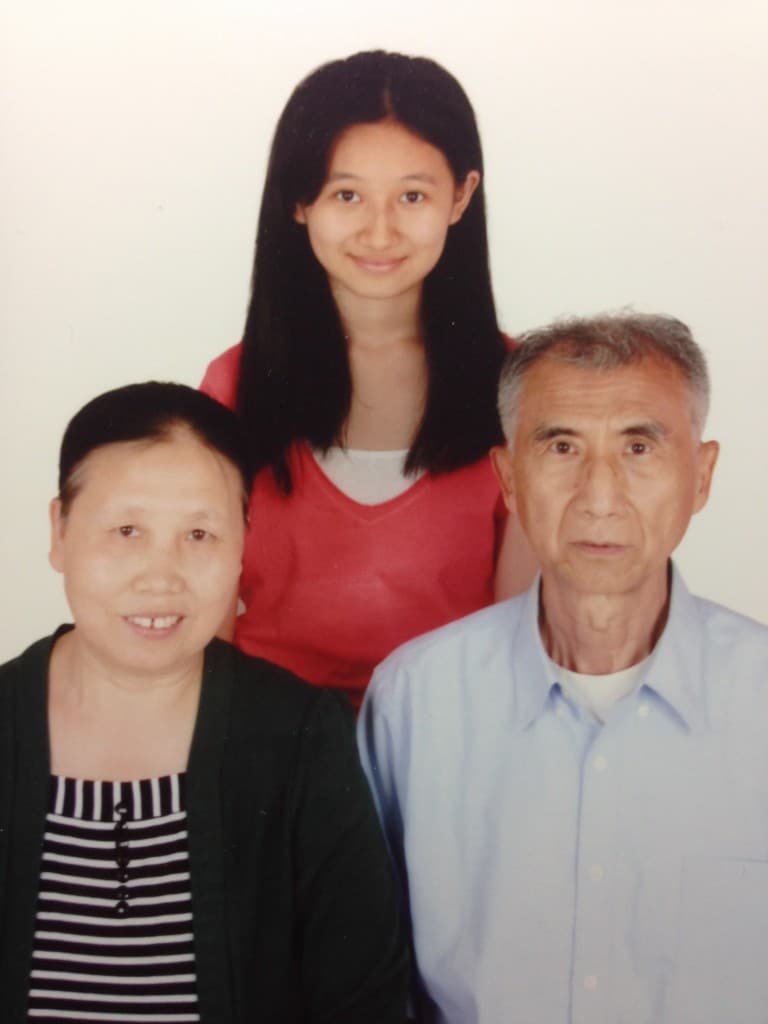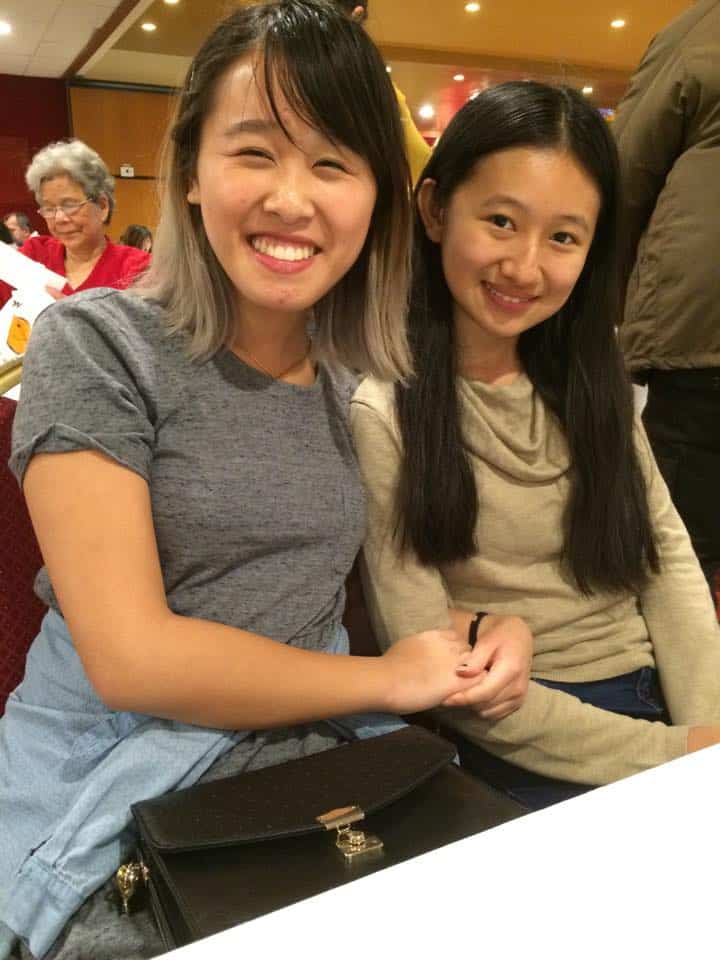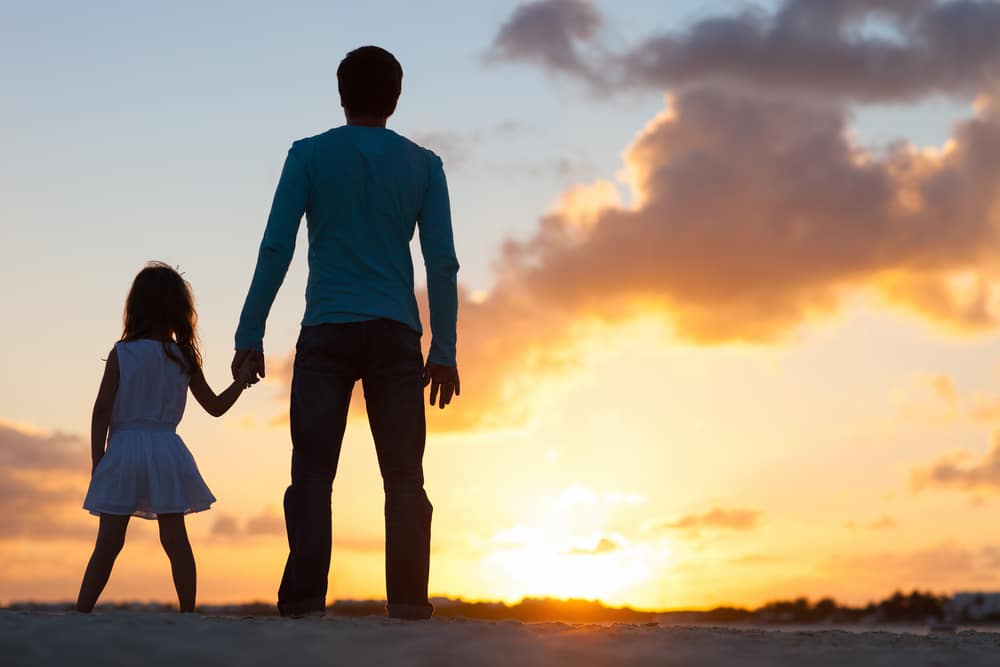One weekend on a sunny afternoon, while walking on the street with my mom and I, my dad accidentally stumbled onto a roadblock and fell to the ground. Suddenly, blood splashed and covered all over his T-shirt and shorts. My mom and I were both terrified at the moment, and I was very thankful of the passers-by who quickly handed me some tissue papers, so my father could press them on the wounds to prevent them from bleeding. As I helped my dad stand up while holding his right hand tightly, my mom called a taxi and we headed toward the hospital. I kept holding his hand as we made our way through the crowd in the emergency room. An ophthalmologist first stitched up his wounds on the forehead, which was wounded badly. Then, he had a tetanus shot to prevent infections. Finally, he had a CT imaging, the result of which showed a fracture of his nasal bone.

Fang with her parents.
It was already six in the evening after we finished all the medical process and went back home. My father decided to take a nap, and my mom and I, too, felt extremely tired. I went back into my room and lied on my bed, but I couldn’t fall asleep. Everything that happened in the past five hours—the sudden fall, the blood, and the emergency room in the hospital— still lingered in my mind. It was actually my first time taking my dad to the hospital. When I was child, it was me who was always the patient, and it was my dad who always tirelessly took me to the hospital. However, that afternoon, our roles suddenly switched: I was no longer the weak and crying child, and my dad was no longer the strong and caring father. I now become the one who’s going to take care of my parents, and my aging parents are gradually becoming the ones being taken care of. At that moment, I truly realized that I had already grown up, and it is time for me to shoulder my responsibilities.

Fang (right) with friend.
Throughout my childhood and my teenage years, I was always taught by my teachers to learn to take up responsibilities in my family. The so-called “responsibility”, was dusting my room at the age of eight, learning to cook a simple dish at the age of fourteen, and understanding my parents’ hard work at the age of eighteen. My education pushed me to learn my “responsibilities”, but I never learned them by heart when I was a well-protected kid of my parents, who took care of me to the extent that many might consider as “over-protective”. I still remember begging my father to teach me to cook when my high school teachers encouraged us to be more independent, but having my parents standing aside and telling me when to put more salt and when to turn down the fire made me feel like a dependent and immature child, and actually I was a child at that time. However, it was not until I started cooking by myself when I lived thousands of miles away from home that I truly learned the lesson of being independent. The same logic applies here too. Only when I saw my dad fall and realized that he needed me to take care of him did I understand the true meaning of “responsibility”—the courage and the ability to stand up and do what you should when I am needed. It’s still good to know the word “responsibility” at an early age, but it is real experience that brings real sense to this important word, and this important lesson in life.


